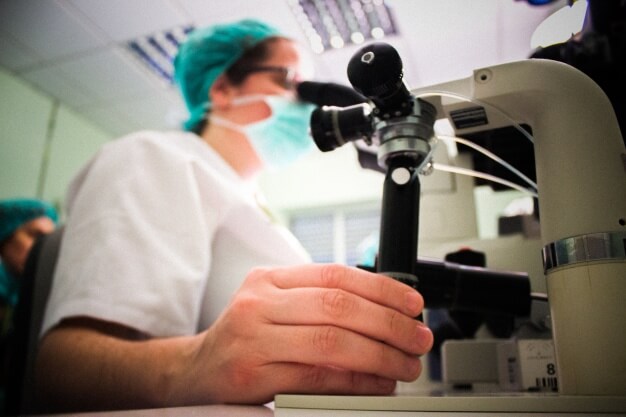What are you looking ?


8 Easy Ways to Tame Excessive Gas
There are a lot of ways to describe excessive gas: burping, belching, flatulence, and bloating. While what you call it might not seem to matter, being able to identify where the gas starts — and where it ends — can help you treat the painful and embarrassing symptoms.
For example, burping and belching usually refer to gas that escapes from the mouth, while flatulence, or farting, is intestinal gas that escapes from the rectum. Bloating is used to describe the sensation of excess stomach gas that has not yet been released.
Gas in the stomach is primarily caused by swallowing air while consuming food or beverages and is released from the mouth as a burp. Gas that is passed by flatulence is caused by the body’s inability to absorb or digest some carbohydrates in the small intestine. Once this undigested food passes into the small intestine, bacteria break it down, producing hydrogen, carbon dioxide, and sometimes methane. This doesn't happen in everyone, though.
When it comes to what factors cause gas, there are several main culprits:
Eating high-fiber foods like beans, legumes, fruits, vegetables, and whole grains
Drinking carbonated beverages
Chewing gum
Eating too quickly or talking while chewing, which results in swallowing more air
Drinking through a straw
Consuming artificial sweeteners
Chronic intestinal diseases like diverticulitis or inflammatory bowel disease
Food intolerances like celiac disease or lactose intolerance
Bacterial overgrowth in the small bowel
It’s common to experience some gas after eating — and to release it through belching or flatulence. According to the National Institute of Diabetes and Digestive and Kidney Diseases (NIDDK), passing gas about 13 to 21 times a day is normal.
But if you’re experiencing painful gas and the embarrassment of chronic and foul-smelling flatulence, you can start to play detective and try to eliminate the cause with the following steps.
1. Avoid Foods Known to Cause Gas
One way to manage flatulence and belching is to eat fewer of the well-known gassy foods. Common culprits include:
Fruits like apples and pears
Vegetables such as broccoli, Brussels sprouts, and onions
Whole grains like bran
Dairy products, including milk, cheese, and ice cream.
These items contain fiber, sugars, and starches that don't digest or absorb easily, eventually causing intestinal gas.
Foods containing sorbitol, a naturally occurring sugar found in fruit, are on some people’s gassy foods list. Other people are bothered by carbonated soft drinks and fruit drinks. If you discover that these foods are causing you excess gas, eliminate them from your diet or consume them in smaller portions. When it comes to foods to avoid, moderation is key, says Stephen Bickston, MD, a professor of internal medicine and the director of the inflammatory bowel disease program at the Center for Digestive Health at Virginia Commonwealth University in Richmond.
Keep in mind that almost any food or combination of foods can cause gas.
“Certain foods don’t get along well in certain people,” says Donald Novey, MD, an integrative medicine physician in Poulsbo, Washington. “Some people find they are gassy if they eat fruits with proteins, or if they eat starches and proteins together. It’s personal and requires a little experimentation to find out what the culprits are.”
Dr. Novey suggests keeping a food diary and noting when you feel gassy. “If you find you’re gassy after eating a certain food, eliminate it from your diet and see if it helps," he says.
Cooking may help break down some of the offending ingredients, too, Dr. Bickston says. “But the style of cooking can also decrease healthy chemicals found in vegetables. Boiling seems to break down chlorophyll and other desirable ingredients.” Look for recipes that call for steaming, as that seems to be a better cooking method for gassy foods.
2. Drink Before Meals
If you drink liquids with your meals, you lose stomach acids and can’t break down food as well, Novey says. Try drinking about 30 minutes before a meal to help your stomach digest better.
3. Eat and Drink Slowly
When you eat or drink fast, you can swallow a lot of air, which can cause gas, says Bickston. The simple solution? Slow down when you eat. If you have dentures, check with your dentist to be sure they fit properly so you’re not gasping air while eating.
4. Take Over-the-Counter Digestive Aids
Digestive enzymes are available as over-the-counter supplements. “I recommend going to the health food store and getting a digestive enzyme,” says Novey. “You can take one or two. You will know very rapidly — within a few weeks — if it makes a difference.” But antacids won’t do much for excessive gas, says Bickston.
Another over-the-counter digestive aid, Beano, contains an enzyme that breaks down the complex carbohydrates in beans and many vegetables into more easily digestible sugars. Take two to three Beano tablets or one Beano Meltaway (a dissolving tablet) before each meal. Note that Beano won't help if excessive gas is caused by fiber or lactose.
5. Try Activated Charcoal
While research is still limited, researchers believe activated charcoal may help reduce and treat excess gas and bloating. Unlike the charcoal you find in your grill or fireplace, activated charcoal undergoes a special treatment that makes it safe for human consumption. Once you take activated charcoal (via liquid or pill), it attaches to fluid in your gut, potentially reducing gas and bloating and creating firmer stools.
In a small study published in the Journal of Ultrasound, 42 people with a history of excessive gas in their intestines took 448 milligrams (mg) of activated charcoal for two days before a medical exam and then 672 mg on the day of the exam. The researchers found that they had a better ultrasound view of certain organs that normally would have been obscured by excessive gas.
In a study published in August 2017 in PLoS One, patients who were given 45 mg of simethicone (an over-the-counter digestive aid) and 140 mg of activated charcoal reported significant improvements in abdominal pain.
6. Don’t Fill Up on Air
Habits like smoking, chewing gum, and drinking through a straw may cause your stomach to fill with air, leading to gas.
7. Avoid Artificial Sweeteners
Sorbitol and related sugar alcohols used in many sugar-free versions of foods can also aggravate gas. “Sorbitol is often the first ingredient in any brand of sugar-free gum I’ve found at local grocery stores,” says Bickston. “One to two sticks is akin to eating a prune.” But the sugar substitutes that are found at a typical coffee stand or in popular soft drinks are not the kind that cause gas. The various packet sweeteners — yellow (sucralose), pink (saccharine), and blue (aspartame) — are not associated with gas or laxative effects.
8. Try Herbs for Gas Relief
Some research suggests a number of herbs may help relieve excess gas. For example, a review published in April 2015 in European Review for Medical and Pharmacological Studies found ginger helps speed digestion. This is helpful because if the stomach empties faster, gas can move more quickly to the small intestine to relieve bloating and discomfort.
A review published in 2014 in the Journal of Clinical Gastroenterology found that peppermint oil significantly improved symptoms of IBS, including abdominal pain.
Chamomile is thought to aid in a number of digestive issues, including upset stomach, bloating, and intestinal gas, by relaxing GI muscles and improving digestion.
When Gas Is a Symptom of Something Else
If excessive gas is persistent or severe, consult your doctor — it could be a sign of a more serious digestive condition, such as:
Lactose intolerance This is the inability to digest lactose, the sugar found in milk and milk products. “I test with a milk challenge,” says Bickston. “The patient drinks a pint or two of milk — it can be any percent fat. What follows tells the patients whether they should limit their milk intake.” If avoiding milk reduces your symptoms you may be lactose intolerant.
Irritable bowel syndrome (IBS) “Patients who meet the diagnostic checklist for irritable bowel syndrome suffer more pain at the lower levels of the abdominal cavity,” he says.
Colon cancer “Excess gas is rarely the main symptom of patients with colon cancer,” Bickston notes. “But it does trigger my reflex to remind patients to get screened for colorectal cancer.”
Upper gastrointestinal disorders Occasional belching is normal, but frequent belching may be a sign of an upper gastrointestinal disorder. These include peptic ulcers, gastroesophageal reflux disease (GERD), or gastroparesis, also called delayed gastric emptying.
Also, warns Bickston, if you've had abdominal surgery, a hernia, or significant weight loss or weight gain, never dismiss your gas-like symptoms as normal. Get them checked out.
As annoying as it might be, some gas is a natural by-product of the body’s digestive system. But if your gas is excessive, painful, or chronic, talk to your doctor about possible causes and remedies.
Source: Everyday Health






